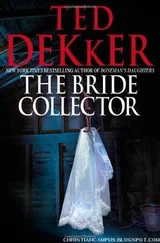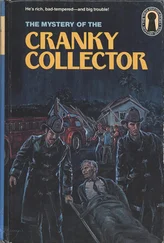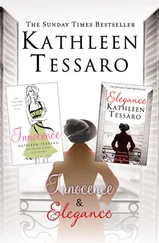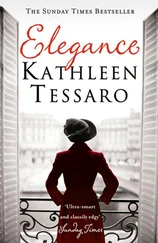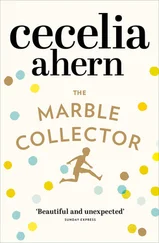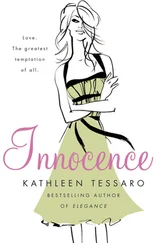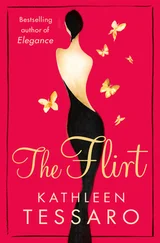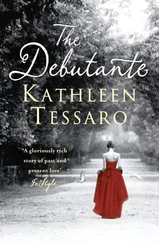She carried her out of the greenhouse, just as Catherine Maudley came running down the path.
‘What is going on here?’ she demanded furiously. ‘Grace! Stop that at once!’
But Grace couldn’t stop. ‘I want to go back, please, Mummy! Please!’
Eva put her down and before she could do anything to settle Grace, Catherine had grabbed her by the shoulders. ‘Just stop it now!’ She turned to Eva. ‘What in God’s name were you doing in there anyway?’
‘We… we just took him his tea.’
‘I told you to take it to him. What were you thinking of ? Stop it!’ She shook the child. ‘Stop it! Do you hear me? No more of that noise! Your father must have quiet. Do you understand? You’re hurting him!’ She slapped Grace across the face, hard. ‘Do you want to hurt him?’
Grace stopped, too shocked and frightened to make another sound.
Catherine stood up. ‘I won’t have this sort of thing, do you understand, Lena? The greenhouse is off limits for a reason. Don’t take her there again.’
Turning abruptly on her heel, she marched back to the house.
Jonathan Maudley sat at his desk, staring into nothingness. Outside, the cool spring day softened. But he was far away, in another time and place.
Please don’t make me go! Please!
Help me! Please!
He closed his eyes. But the voices persisted.
Opening his desk drawer, he reached for a bottle of whisky. Struggled to get the top off. Tipping his head back, he took a long swallow. Then he pulled a roll-up from his shirt pocket and lit it.
He inhaled hard, holding on to the lighter, pressing it into the palm of hand. He ran his thumb along the inscription. Always and Evermore , it read – a gift from Catherine when he’d joined up. But still the memories unfolded like an unstoppable newsreel in his head.
Here was an open field, a gentle green hillock. The expanse of brilliant blue sky above. Dawn had risen over the valley of the Somme as gently, gracefully as on a page from Genesis, unfolding into a beautiful morning, cloudless, hot.
And young men, passing cigarettes and flasks, joking; laughing at their own nerves.
Then it began, out of nowhere.
Someone shouted an order; others followed.
Shells whistled through the air… there were the cartwheels – horizontal, with machine guns… swinging round, a belt of fire on the hill, filling the air with black smoke and noise.
Jonathan took another swig.
Here were the faces he didn’t want to see.
Men twisting, dancing, arms outstretched – body parts exploding in mid-air, showering down in sprays of guts, sinew and bone. The ground beneath them turned greasy, slippery with blood
And the roar. The unholy, ceaseless sound of terror.
‘Please! Please!’
The dying dangled in the sea of barbed wire, caught mid-air. Like men praying, falling to their knees, only the wire wouldn’t let them.
They just hung there.
‘Please! Please, sir! Don’t leave me, please!’
Jonathan staggered past them, half-blind, deafened; his right arm shattered open.
‘Help me, sir! Please!’
Half a man’s face was gone, an eye swinging from its socket, yet his mouth still moved.
Jonathan shot him with trembling hands. His own man.
The boy slumped forward, a marionette, strings cut.
‘Fall back! Move! Move, you bastard! Move!’
Someone was waving, shouting; hauling him up by the collar of his jacket.
Looking over his shoulder, he saw the long lines of Germans sweeping along the brow of the hillock, four hundred yards away. They were marching slowly, shoulder to shoulder; a solid grey wall of men and ammunition.
He managed to make it back to the third line and there, in a state of delirium, manned one of the machine guns until he fell unconscious from loss of blood.
So many years had passed now.
But that day would never end.
It was late, almost ten in the evening, when Eva went back to collect the tea tray from Jonathan Maudley’s desk. He hadn’t come in to supper, as she’d promised Grace. Instead, Grace had eaten alone with her mother. Some time after seven, Eva had heard the sound of the motor starting, heading down the drive. Probably to the pub. And not long afterwards, Catherine retired to her bedroom for the night.
The greenhouse had no electricity. So Eva took a lantern with her, illuminated by a stubby, low candle. Pulling her cardigan around her against the cold, she made her way down the garden path. The moon was bright and high; shadows shifted in the darkness, wind rustling through the leaves. She knocked on the door. No reply.
Pushing it open, she went through to the office.
There, on his desk, untouched, was the tea tray. But as she went to lift it, she noticed there were also a number of papers that hadn’t been there before, a small collection of old newspaper clippings.
Lifting the lamp higher, Eva picked one up.
Local Hero to be Honoured in Memorial Ceremony, it read.
Another one contained a photograph of him in uniform, Capt Maudley Receives Military Cross for Bravery.
Suddenly she heard the crunch of gravel under the wheels of a car. Putting the clippings back where she had found them, Eva picked up the tray and, moving as quickly as possible, made her way out of the greenhouse.
From the safety of the kitchen, she could just make out the outline of a figure, staggering and reeling towards the house.
That night, in bed, Eva thought about how handsome and young he had looked in the newspaper clippings.
And how different, unrecognizable, he was now.
Grace was lying on her stomach on the floor, stacking wooden blocks into a precarious structure with great concentration. Her little brow was knit, her tongue pressed hard into the corner of her mouth.
Eva sat down on the chair near the fireplace. ‘What are you building?’
‘A fortress,’ she answered, without looking up.
‘You never like to play with dolls, do you?’ Eva noted.
Grace shook her head. ‘I’m going to make things. Like Daddy.’
‘Not a mummy with a baby?’
‘A mummy with a baby and a maker,’ she determined, balancing another block.
‘Lena!’ Catherine was calling from the kitchen. ‘Lena! Come here, please.’
Both of them hurried downstairs. Catherine was standing in the kitchen, arms folded in front of her. Her face was serious.
‘I’d like an explanation, Lena.’ She pointed to the greasy panes of glass, with bits of dead flowers smashed between them, lined up on the kitchen counter top. ‘I went into the pantry to compile a shopping list and I found these.’ Her upper lip curled in disgust. ‘What are they? Please don’t say that we’re meant to eat them!’
‘They are flowers presses, ma’am. To make perfume.’
‘Perfume?’ Catherine was at a loss. ‘But why?’
‘Well, I… it’s just…’ Eva blinked. ‘I thought it would be something to do, ma’am. As a project for Grace.’
‘Little girls don’t need projects. And if they do, you can teach them how to knit or sew – something useful!’ Gingerly she picked at the side of one of the glass panes, recoiling from the greasy edge. ‘What is that anyway? Lard?’
‘Tallow, ma’am.’
‘Good God!’ Catherine shuddered, wiping her fingertips off on a tea towel. ‘And what’s this?’ She pointed to another.
Eva looked down at the floor. ‘Hair, ma’am. And a bit of wool.’
‘I have honestly never seen anything so disgusting in my life! And in the kitchen of all places! Really, Lena. I don’t understand – you’re normally so clean. Get rid of them. It’s bound to be rancid by now.’
‘But it isn’t, Mummy,’ Grace interjected. ‘And this one,’ she pointed out the panes with the paperwhites, ‘this one is going to be mine when it’s ready!’
Читать дальше
Конец ознакомительного отрывка
Купить книгу



